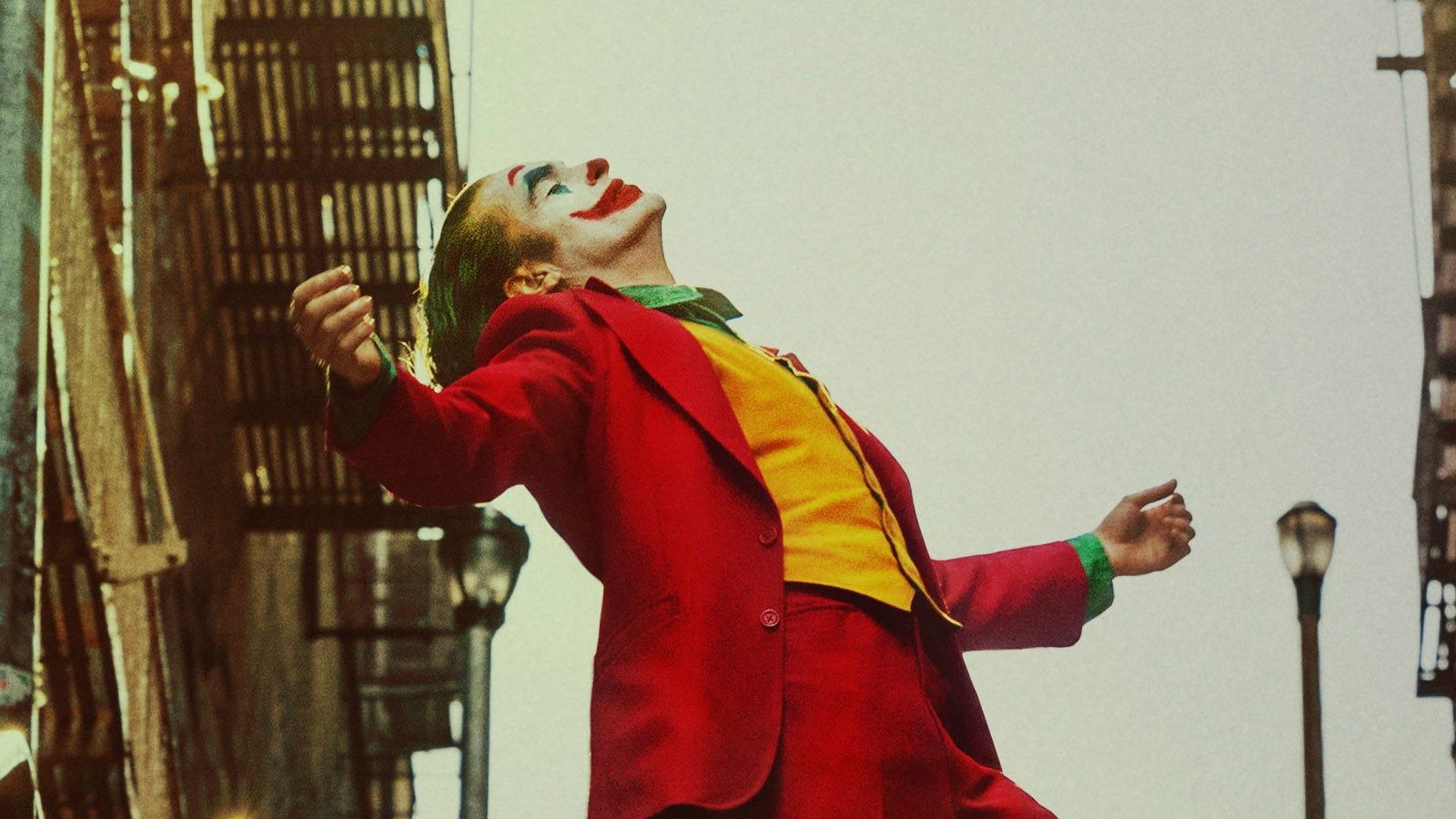There are few characters more simultaneously terrifying and fascinating in the DC Universe than the Joker, famed arch-nemesis of Batman, and one of the greatest persistent scourges of Gotham City. The Joker is so well-known in fact that even those who don’t know the first thing about comic books, superheroes or even much of pop culture in general recognize this character, who has since gone down in history as one of the most celebrated examples of a proudly irredeemable arch-villain. Despite the Joker’s proud legacy of evil however, there have been some DC-published stories that have attempted to make the character at least somewhat sympathetic, most notably Alan Moore’s acclaimed 1988 graphic novel, Batman: The Killing Joke, but that’s certainly no easy task for a man who sees insanity, murder and destruction as the only absolute truths to humanity and the world.
What better and bolder first subject could there be then for a wild idea from writer/director, Todd Phillips; A new line of micro-budgeted, adult-oriented DC movies that aim to dive deep into certain DC Universe personalities, granting them new character dimensions, and utilizing them as fascinating allegories for the challenges of our modern world? Warner Bros. doesn’t appear to be ready to go all in on that proposed new DC film imprint yet, particularly after Phillips had to fight for years to get his big idea green-lit, but the studio did nonetheless end up capitulating to making Joker, an all-new DC-inspired movie set outside of Warner Bros.’ shared DC Extended Universe movie franchise (which is only offering this past April’s Shazam! for 2019), and one that aims to tell a chilling, thought-provoking new origin story for the Clown Prince of Crime.
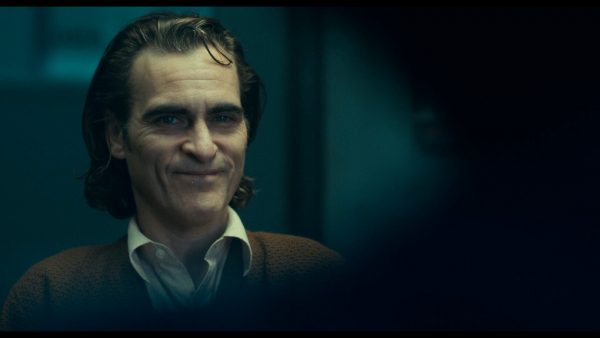
Set during the 1980’s, and free of having to shackle itself to any previously established Batman/DC continuity, Joker portrays a politically-charged, retro chic Gotham City, one ravaged by class warfare and anti-capitalist sentiment, wherein the city’s biggest problem doesn’t appear to be its usual crime and corruption cocktail, but is instead an overblown wage gap that sees poverty, unrest and social apathy in Gotham soaring out of control. Obviously, there’s no Batman around to get the greedy capitalists to fall in line either, with the future Dark Knight’s father, Thomas Wayne now a key part of the crushing economic machine that is gradually squeezing the life out of the city’s lower class. It’s through all of this economic and social chaos that the Joker is ultimately born, but before that happens, the titular character is simply a troubled man who’s more than a little strange, but doesn’t really mean any harm, not until it becomes his only way of connecting to an increasingly cold, loveless world that seems determined to ignore and forget him.
Even compared to Christopher Nolan’s highly philosophical and political Dark Knight trilogy of Batman movies, Joker is on a whole other level in terms of trying to very bluntly and harshly shine a light on problems that face our real-world society today, despite framing them through a movie that’s set several decades in the past. The question remains however– Is Joker any good? Well, perhaps the best thing about Joker is that its appeal can be very subjective, particularly after it appears to have somewhat divided critics. Not everyone will be sensitive to Arthur Fleck’s story. Not everyone will agree with the starkly political and social commentary that Joker is clearly built around. Some will see Joker as a masterpiece, some will see it as a waste of time, but just about everyone will be challenged by it, and that’s a level of thematic power that most comic book movies could only dream of.
Joker stars Joaquin Phoenix as the titular super-villain-to-be, who, in this one-off continuity, is Arthur Fleck, a clown-for-hire with dreams of being a stand-up comedian. Arthur lives with his mother, is barely making ends meet as part of Gotham’s lower class, and has a debilitating neurological condition that causes him to sometimes burst into uncontrollable laughter, particularly during periods of stress and/or discomfort. By all accounts, Arthur is the textbook definition of what the ‘haves’ especially would consider a ‘loser’, despite his apparent desire to do good, smile and put on a happy face. Arthur believes it’s his purpose in life to spread joy and laughter, but as Joker unfolds, and Arthur suffers ever more abuse, more neglect and more destructive mockery, his mission becomes gradually more twisted, more unpredictable, and especially more violent.
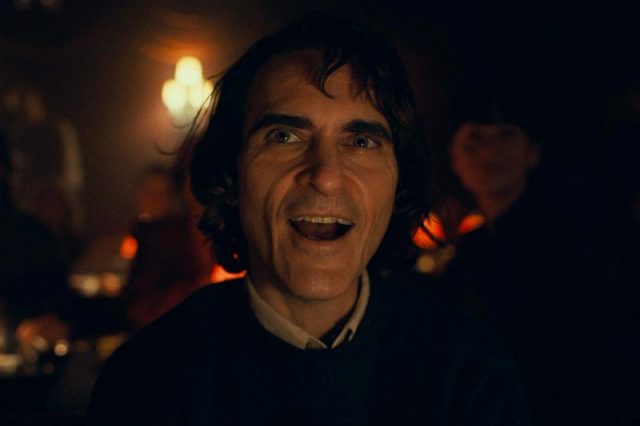
In the majority of previous Batman/DC media, we don’t actually know the Joker’s name or origin. He could have been anybody before he was the Joker. While 1989’s Batman movie by Tim Burton did give the character a backstory and an official identity as ‘Jack Napier’, 2008’s The Dark Knight and 2016’s Suicide Squad gave the character no name, no other alias, and no discernable origin or backstory of any kind. There certainly is something especially frightening about not knowing who the Joker is or where he came from (even Batman: The Killing Joke and its Joker origin story opted not to give the Joker an official identity for the DC Universe), but Joker takes the opposite approach, making us painfully aware of who this take on the Joker is, and where he came from. The identity of, “Arthur Fleck” may be made up for Joker specifically, and was never previously mentioned in any other Batman/DC media, but it allows us to humanize the character on a deeper level than even Batman: The Killing Joke previously attempted. It’s amazing what even a name can do to change what this character represents!
There’s a lot to dig into with Joaquin Phoenix’s particularly sick and uncomfortable portrayal of Arthur Fleck, but before digging into it proper, it must be stressed that Phoenix gives even the late Heath Ledger a run for his money with his particularly deep dive into the Joker! Phoenix’s Joker is by far the most humanized and uncomfortably relatable take on the character in cinematic history, and possibly in all of the character’s entire history to date! Being sickly malnourished, unpredictable in manner, and yet also palpably pathetic, Phoenix accomplishes the seemingly impossible task of making viewers feel sorry for the Joker, one of the most famously irredeemable villains in pop culture history. Rather than make the character a proudly psychotic monster, as he’s usually portrayed, Phoenix and director, Todd Phillips make him the kind of monster that we could have saved, but we didn’t, because we didn’t see it as worth the effort back when he could have been saved.
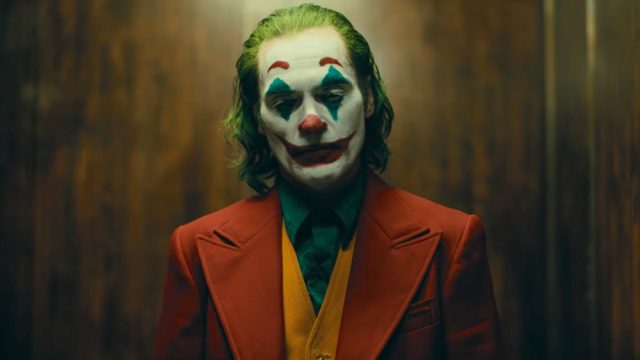
It feels like you could dive into Phoenix’s heavily complex Joker portrayal over the course of an entire college thesis, but I will simply sum it up by saying that Phoenix steals this entire movie from even juggernaut co-stars like Robert De Niro, not only being more than worthy of a ‘Best Actor’ Oscar, but also beautifully carrying the increasingly delusional and unhinged perspective of a character that’s doomed to become a mass-murdering psychopath. There’s an especially potent air of tragedy and woe to a Joker that truly is a person, and not just a force of nature. Hell, Arthur Fleck isn’t just a person, but a person that we as a society threw away, that we denied the right to basic humanity, just because we didn’t want to be uncomfortable for a minute. Thus, in having no human connection, Arthur has no empathy, and as a result, he has no choice but to redefine reality through his own damaged perspective. This inevitably turns Arthur into a man who can only express himself through violence, in a thematic touch that’s undeniably drawing inspiration from the American epidemic of mass shooters.
In fact, the only criticism that you could perhaps level at Joker’s roster of characters is the fact that they suffer from Phoenix being too good in this role, if anything! Because the decaying and perverse outlook of Arthur is so uncomfortably magnetic and engrossing, it doesn’t feel like any of the movie’s other characters truly matter, which may potentially be by design. For what it’s worth, Robert De Niro plays a talk show host that Arthur idolizes, Frances Conroy plays Arthur’s kindly shut-in mother, Zazie Beetz plays a neighbour that Arthur develops a fixation toward, and Brett Cullen portrays a distinctly Ronald Reagan-resembling rendition of Thomas Wayne, the equally doomed father of the future Batman (Bruce Wayne does appear as a child in Joker, but he’s obviously way too young to become Batman in this continuity), now re-envisioned as a right-wing mayoral candidate that’s trying to push the idea of ‘trickle down economics’ on Gotham’s poor and destitute. Cullen’s Thomas Wayne and Conroy’s Penny Fleck get a few inspired moments of thematic development, but everyone else is purely in Phoenix’s shadow, which is perhaps appropriate for a movie that never wants us to lose focus on the real tragedy at hand.
As I previously mentioned, Joker is a fully standalone movie that does not take place within any previous Batman/DC continuity, including Warner Bros.’ shared DC Extended Universe movie canon. Joker is a one-off, proudly R-rated movie with something very controversial to say, so it makes sense that the movie would be removed from Warner Bros.’ more purely escapism-driven DCEU. Joker certainly doesn’t care about accommodating audiences either, never compromising its vision, even when it forces us to dive into something truly nerve-wracking and disturbing, as well as something that creeps much closer to reality than DC media often dares to do, including Christopher Nolan’s more grounded Dark Knight trilogy.
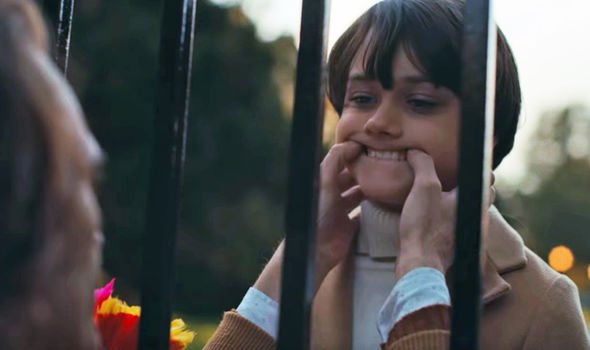
Some will inevitably be concerned (and already have been concerned in several instances), that Joker is in fact hitting so close to home that it may incite real-world violence and anarchy! This isn’t a story about romanticizing the man who would become the Joker however (at least, in this one-off continuity), but instead to merely understand what made Arthur Fleck, a man formerly so innocent and misunderstood, turn into such a violent psychopath. We’re not necessarily supposed to root for Arthur, and indeed, Joker makes it pretty clear throughout its runtime that Arthur is not a hero, nor is he someone that we should aspire to be. The challenge here however is not that we may confuse Arthur for a hero, but that Arthur may confuse Arthur for a hero, and in never trying to understand or support Arthur, or give him any kind of tether to his fellow man, Gotham’s citizens ensured that Arthur, like all great villains, became the hero of his own violent and depraved story.
Writer/director, Todd Phillips and his co-scribe, Scott Silver write the literal hell out of Joker’s script as well. This is a very finely-crafted, hyper-detailed character examination, where every scene matters, and not one sequence feels out-of-place. The storyline is predictable in places, but this is easy to forgive, since Joker isn’t really meant to surprise you. In fact, Joker seems designed to force viewers to confront a truth that they already know is there– That some people urgently need help and support, or even just a bit of human decency, but they don’t get it, because American society is built within a system that almost forces us to be more concerned about us and ours, along with our personal bottom lines. As a result, the journey to Arthur’s inevitable fall into full-blown madness can be slow, sometimes maddeningly slow, but the threat is always there, creeping ever further, and creating an intense character piece in Joker that will enthrall audiences, as viewers silently implore someone, anyone to get Arthur the help he needs, despite knowing in their hearts that help will never come.
Joker is something of a magnum opus for Todd Phillips, who has dabbled in serious-minded movies more recently with War Dogs, despite still being best known for bringing us raunchy, irreverent comedies like Old School and the Hangover trilogy. Joker however finally gives Phillips an outlet through which to explore a new side of comedy, namely the idea of comedy as viewed through the eyes of a madman, made into a monster by the rejection of people that never seemed to respond to him just wanting to make them laugh. Some of the most painful scenes to watch in Joker in fact are the ones where someone asks Arthur what the hell is so funny, which, in a series of deep cuts on Arthur’s character, always feels like the deepest cut of all. Despite just wanting to make people laugh, Arthur was never really given a chance to be anything other than human garbage, and Phillips brilliantly captures how someone’s idea of humour and happiness can be twisted when they fail to connect with other people on a fundamental human level.
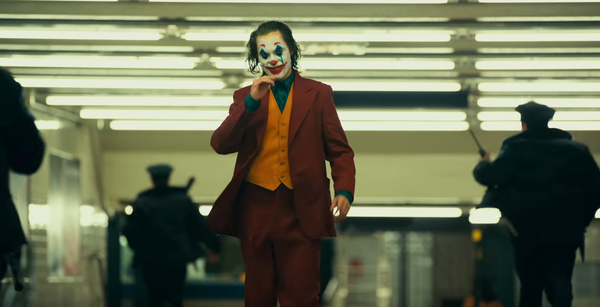
As much as Phillips is clearly making sure to try and perfect every detail and every nuance to the people and personalities of his own seedy take on a 1980’s-era Gotham City, where his direction shines most is when he highlights the tragedy of Arthur, but nonetheless captures that tragedy translating as humour in Arthur’s mind, humour that society just refuses to properly understand. The best touch here is when Arthur inevitably abandons his efforts to relate to other people, declaring in that frequent trailer line, “I used to think my life is a tragedy, but now I realize it’s a comedy!” In a perverse way, Arthur isn’t wrong either! Phillips makes sure to also highlight that Arthur does indeed get a happy ending through his character transformation, but happy only to him. This creates a clever irony wherein Arthur finally adopts the winner-take-all mentality that people always demonstrated toward him throughout his life, only putting his own mentally unsound spin on it, so that it eventually gives birth to the ultimate pop culture nihilist, the Joker.
Again, despite Joker taking place in the 1980’s, it’s clear that Phillips has a lot to say about our society today, with themes and examinations in Joker ranging from: Unchecked capitalism, perception of mental illness, reception to random acts of violence outside of high society, mass shooters, incels, introverts, unrequited love, domestic abuse, delusions of grandeur, toxic ideologies, cuts to social funding, economic strife, and abuse of power in government and the media, among others. It’s a grand series of social and political commentary that could have very easily turned Joker into an aimless, self-indulgent mess. Fortunately though, Phillips brilliantly filters these themes through this movie’s title character and his long history of psychologically and politically complex ideals, twisted as they are. Like its title character, Joker feels like it won’t apologize for trying to expose the ugly truth, and in doing so, it actively invites subjective interpretation. Such polarization among critics in particular is thus no doubt a win for Phillips and his direction. Joker is more about asking questions than providing answers, and in trying to create a comic book movie meant to challenge the viewer over simply entertaining them, Phillips appears to have succeeded with flying colours!
Joker is a whole new kind of comic book movie, a modern tragedy that unapologetically holds a cracked mirror up to the failings of capitalism-driven Western society, and challenges the viewer with a starkly human tale that leaves us with more questions than answers. It’s not out to start a franchise, or groom sequels, or merchandise, or become any part of the massive marketing machine that the majority of Hollywood’s modern comic book blockbusters unfailingly become a part of, every time. Instead, Joker does away with the fantastical, the heroic and the inspiring sensibilities of other comic book movies, set in the DC Universe or otherwise, to show viewers the other side of society’s so-called champions, namely those they step on and forsake in their quest to seize power and affluence.
As a result, Joker is a movie that dares you to look away. Hell, it practically challenges you to look away! There are definitely some especially uncomfortable moments where you’ll want to avert your gaze, or reject what you see, or even walk out of the theatre as well, but I urge you, don’t do it. Keep watching. Push down that instinct to flee from what you see. Take it all in. See Joker through to the end, because any self-respecting moviegoer, comic book fan, character piece enthusiast, or any rational, thinking adult in general, owes it to themselves to do so. They owe it to themselves to see what Arthur Fleck is, and what he becomes, and what that may mean for where our modern world currently appears to be headed.
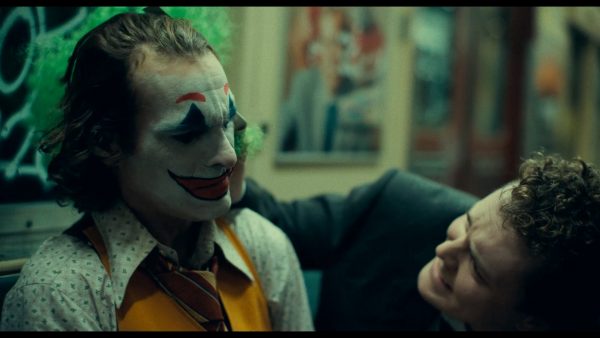
Personally, I loved Joker, especially when it made me uncomfortable! It’s a testament to the kind of thematic and narrative potential that modern comic book movies can achieve, when they’re not afraid to venture off the beaten path, and ditch franchise potential in favour of going all in on one well-crafted story. That’s not to say that the DC Extended Universe and the Marvel Cinematic Universe don’t have their place in modern cinema, because they most certainly do. We need those DCEU and MCU popcorn flicks as much as we need movies like Joker, since both push the comic book medium in opposing, but equally important directions. In a perfect world, we deserve comic book movies that are meant to be fun escapism simultaneously with comic book movies that are designed to challenge us, and make us think about the real world that we currently live in.
Like I said, not everyone will like Joker, and not everyone will agree with its socialist themes of condemning unchecked capitalism, and probing our desire to wash our hands of the uglier parts of society. Hell, there will probably even be some people that dislike it simply because it’s not starting a franchise, it’s not part of the DCEU, and it doesn’t have Batman in it. Despite that however, you owe it to yourself to check this movie out. Joker is definitely one of the most challenging and memorable movies of 2019, one that not only encourages us to re-think the potential for modern comic book movies, but also to re-think our own reality, and whether our quest to place material success above human connection excuses the Arthur Fleck’s that we may leave in our wake.

